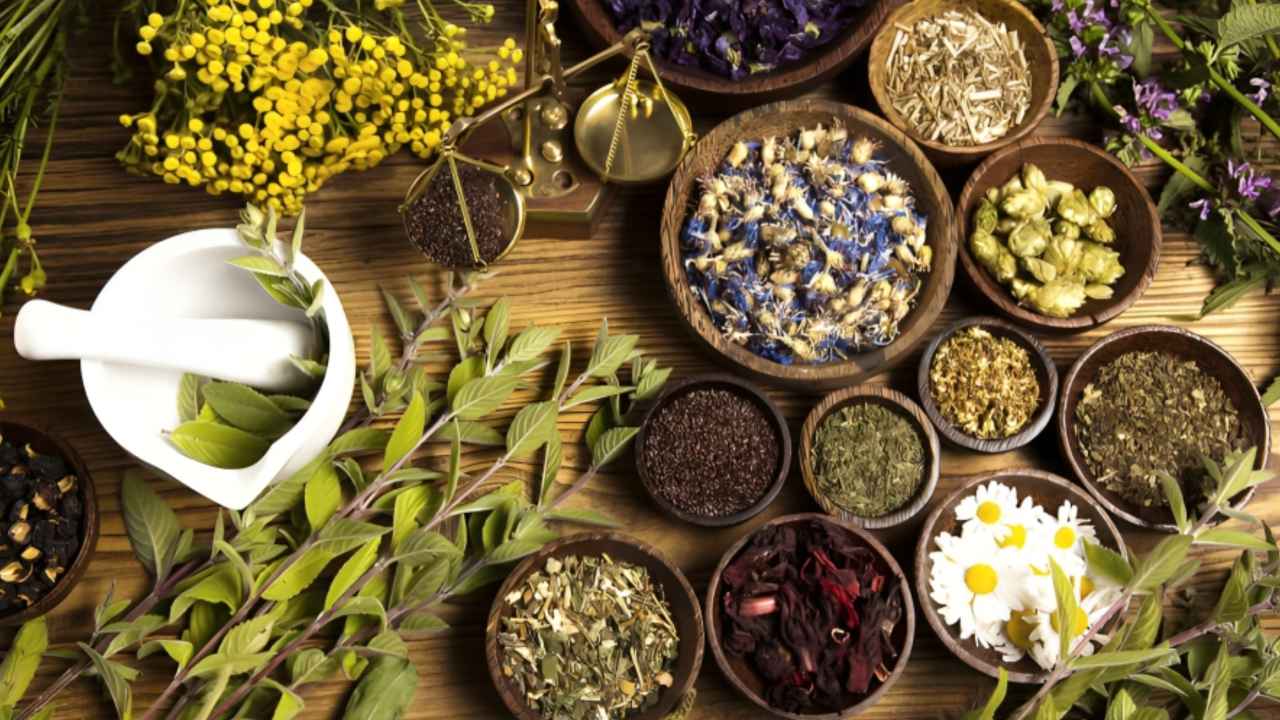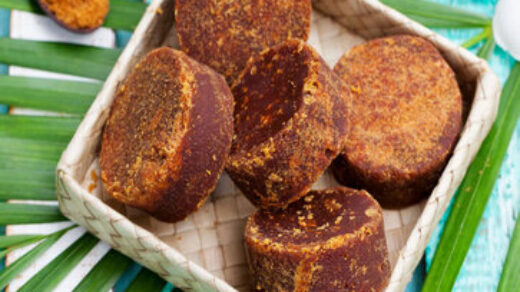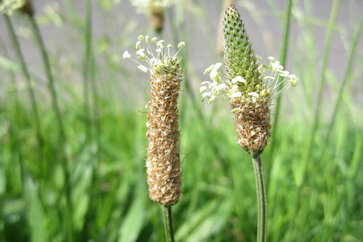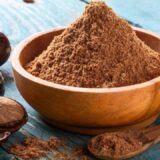High Cholesterol? Try These 25 Indian Kitchen Remedies For Better Health
High cholesterol is a widespread health issue globally. Cholesterol is a type of fatty substance present in your bloodstream, and having elevated levels of LDL (low-density lipoprotein) cholesterol can heighten the risk of heart disease.
Although medication is frequently prescribed to control cholesterol, integrating these traditional remedies from India can supplement medical treatment and enhance overall health. In India, renowned for its diverse culinary traditions, numerous remedies can be found right in your kitchen to assist in naturally managing high cholesterol.
These traditional remedies not only enhance the taste of your dishes but can also play a role in promoting a healthier heart.
1. Garlic (Allium sativum):
Properties: Garlic contains allicin, which has antioxidant and anti-inflammatory properties.
Benefits: May help lower LDL (bad) cholesterol levels and improve overall heart health.
How to Use: You can consume fresh garlic cloves, add it to your cooking, or take garlic supplements as per the recommended dosage.
2. Turmeric (Curcuma longa):
Properties: Turmeric contains curcumin, which has anti-inflammatory and antioxidant properties.
Benefits: May help lower LDL cholesterol and reduce inflammation in the arteries.
How to Use: Add turmeric to your cooking, make turmeric tea, or take turmeric supplements with black pepper for better absorption.
3. Ginger (Zingiber officinale):
Properties: Ginger has anti-inflammatory and antioxidant properties.
Benefits: May help reduce cholesterol levels and improve blood circulation.
How to Use: Use fresh ginger in cooking, make ginger tea, or take ginger supplements.
4. Fenugreek (Trigonella foenum-graecum):
Properties: Fenugreek contains soluble fiber and saponins.
Benefits: May help lower LDL cholesterol levels and improve blood sugar control.
How to Use: You can soak fenugreek seeds in water overnight and consume them in the morning or use them in cooking.
5. Hawthorn (Crataegus spp.):
Properties: Hawthorn has antioxidant and vasodilatory properties.
Benefits: May improve heart health, reduce LDL cholesterol, and enhance blood flow.
How to Use: Prepare hawthorn tea or take hawthorn supplements as directed.
6. Cinnamon (Cinnamomum verum or C. cassia):
Properties: Cinnamon contains antioxidants and has anti-inflammatory properties.
Benefits: May help lower LDL cholesterol and improve insulin sensitivity.
How to Use: Add cinnamon to your meals, beverages, or take cinnamon supplements.
7. Oat Bran (Avena sativa):
Properties: Oat bran is high in soluble fiber, particularly beta-glucans.
Benefits: May help reduce LDL cholesterol and improve heart health.
How to Use: Incorporate oat bran into your diet by adding it to oatmeal, smoothies, or baked goods.
8. Psyllium (Plantago ovata):
Properties: Psyllium is rich in soluble fiber.
Benefits: May help lower LDL cholesterol and improve digestive health.
How to Use: Mix psyllium husk powder with water and consume it as directed.
9. Artichoke Leaf (Cynara scolymus):
Properties: Artichoke leaf extract contains compounds like cynarin and phytosterols.
Benefits: May help lower LDL cholesterol levels and improve liver function.
How to Use: You can take artichoke leaf supplements or brew artichoke leaf tea.
10. Green Tea (Camellia sinensis):
Properties: Green tea is rich in antioxidants, particularly catechins.
Benefits: May have a mild cholesterol-lowering effect and improve overall cardiovascular health.
How to Use: Brew green tea and drink it regularly as part of your beverage choices.
11. Red Yeast Rice (Monascus purpureus):
Properties: Contains naturally occurring statins, such as lovastatin.
Benefits: May help reduce LDL cholesterol levels.
How to Use: Available in supplement form, but consult a healthcare provider before use due to potential side effects and interactions.
12. Amla (Indian Gooseberry, Phyllanthus emblica):
Properties: Amla is rich in vitamin C and antioxidants.
Benefits: May help lower cholesterol levels and improve heart health.
How to Use: Consume fresh amla fruit, amla juice, or amla supplements.
13. Bilberry (Vaccinium myrtillus):
Properties: Bilberries contain antioxidants and anthocyanins.
Benefits: May improve blood circulation and support heart health.
How to Use: Bilberry supplements are available, or you can consume fresh bilberries when in season.
14. Guggul (Commiphora wightii):
Properties: Guggul resin contains compounds called guggulsterones.
Benefits: May help lower LDL cholesterol and triglyceride levels.
How to Use: Guggul supplements are commonly available.
15. Black Seed (Nigella sativa):
Properties: Black seed oil contains thymoquinone, which has antioxidant properties.
Benefits: May help improve lipid profiles and reduce inflammation.
How to Use: Take black seed oil as a supplement or incorporate it into your diet.
16. Coriander (Coriandrum sativum):
Properties: Coriander seeds contain antioxidants and dietary fiber.
Benefits: May help lower LDL cholesterol and triglyceride levels.
How to Use: Crush coriander seeds and add them to your meals or brew coriander seed tea.
17. Bergamot (Citrus bergamia):
Properties: Bergamot contains flavonoids and polyphenols.
Benefits: May help lower LDL cholesterol and triglyceride levels.
How to Use: Bergamot supplements or bergamot-infused teas are available.
18. Policosanol:
Properties: Policosanol is a mixture of aliphatic alcohols derived from sugarcane or beeswax.
Benefits: May help reduce LDL cholesterol levels and increase HDL (good) cholesterol levels.
How to Use: Policosanol supplements are commonly available.
19. Dandelion (Taraxacum officinale):
Properties: Dandelion leaves contain vitamins, minerals, and antioxidants.
Benefits: May support liver function and promote overall cardiovascular health.
How to Use: Use fresh dandelion leaves in salads or brew dandelion leaf tea.
20. Astragalus (Astragalus membranaceus):
Properties: Astragalus root contains flavonoids and polysaccharides.
Benefits: May help lower LDL cholesterol and strengthen the immune system.
How to Use: Prepare astragalus root tea or take astragalus supplements.
21. Nettle (Urtica dioica):
Properties: Nettle leaves are rich in vitamins and minerals.
Benefits: May help lower LDL cholesterol and support overall health.
How to Use: Brew nettle leaf tea or incorporate fresh nettle leaves into recipes after blanching them.
22. Chia Seeds (Salvia hispanica):
Properties: Chia seeds are high in fiber and omega-3 fatty acids.
Benefits: May help lower LDL cholesterol and improve heart health.
How to Use: Add chia seeds to smoothies, yogurt, or oatmeal.
23. Gynostemma (Jiaogulan, Gynostemma pentaphyllum):
Properties: Gynostemma is an adaptogenic herb with antioxidant properties.
Benefits: May help lower LDL cholesterol, reduce inflammation, and support overall well-being.
How to Use: Brew gynostemma tea or take gynostemma supplements.
24. Cayenne Pepper (Capsicum annuum):
Properties: Cayenne contains capsaicin, which has anti-inflammatory properties.
Benefits: May help improve blood circulation and support heart health.
How to Use: Add a pinch of cayenne pepper to your meals or make cayenne-infused oil.
25. Maitake Mushroom (Grifola frondosa):
Properties: Maitake mushrooms contain beta-glucans and polysaccharides.
Benefits: May help lower cholesterol levels and boost immune function.
How to Use: Incorporate maitake mushrooms into your diet by cooking them or take maitake mushroom supplements.
Frequently Asked Questions About Cholesterol
Q1: What can I drink to flush out my cholesterol?
A1: You can drink green tea, oat milk, or water with lemon, which may help manage cholesterol levels.
Q2: What is the fastest way to lower cholesterol naturally?
A2: The quickest way to lower cholesterol naturally is through a heart-healthy diet, regular exercise, and avoiding saturated and trans fats.
Q3: Is Tulsi good for cholesterol?
A3: Tulsi (Holy Basil) may have cholesterol-lowering properties due to its antioxidants, potentially benefiting cholesterol management.
Q4: How can I get rid of cholesterol in 7 days?
A4: Cholesterol can’t be eliminated in 7 days. Long-term management involves a balanced diet and exercise.
Q5: What home remedies reduce cholesterol?
A5: Home remedies like garlic, ginger, green tea, and soluble fiber-rich foods may help reduce cholesterol naturally.
Q6: Does lemon water lower cholesterol?
A6: Lemon water may have a modest impact on cholesterol due to its vitamin C and antioxidants but isn’t a complete solution.
Q7: How can I permanently lower my cholesterol?
A7: To permanently lower cholesterol, maintain a heart-healthy lifestyle with diet, exercise, and avoiding unhealthy fats.
Q8: Does garlic lower cholesterol?
A8: Garlic is believed to lower LDL cholesterol when consumed regularly as part of a healthy diet.
A9: Vegetables high in soluble fiber like okra, eggplant, and Brussels sprouts may help lower cholesterol.
Q10: Is a cholesterol level of 250 bad?
A10: A cholesterol level of 250 mg/dL is considered high and increases heart disease risk; consult a healthcare professional for guidance.
Q11: Is a cholesterol level of 300 bad?
A11: A cholesterol level of 300 mg/dL is very high and significantly raises heart disease risk, requiring immediate attention and lifestyle changes.
Q12: Does ginger lower cholesterol?
A12: Ginger may positively affect cholesterol levels due to its anti-inflammatory properties, but it’s part of a broader approach to managing cholesterol.
Note: Remember to consult with a healthcare professional before incorporating these herbs and natural remedies into your routine, especially if you have any underlying medical conditions or are taking medications.
References:
- Herbs with anti-lipid effects and their interactions with statins as a chemical anti- hyperlipidemia group drugs: A systematic review(1)
- Herbs for serum cholesterol reduction: a systematic review(2)
- Health-promoting properties of common herbs(3)
- Bioactive compounds from herbal medicines to manage dyslipidemia(4)
- The Cholesterol-Modulating Effect of the New Herbal Medicinal Recipe from Yellow Vine (Coscinium fenestratum (Goetgh.)), Ginger (Zingiber officinale Roscoe.), and Safflower (Carthamus tinctorius L.) on Suppressing PCSK9 Expression to Upregulate LDLR Expression in HepG2 Cells(5)

























